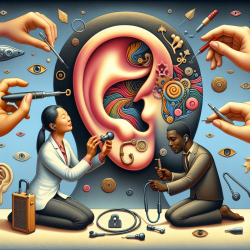As a Special Education Director, one of my primary goals is to ensure that our students receive the best possible support to enhance their language skills. The research article "Building Language: Word Meanings" (1996) by Robyn Dower and Jan Mackey provides valuable insights that can significantly benefit practitioners working with students who have language and learning disorders.
The article emphasizes the importance of structured language exercises to improve word meanings, which is crucial for students with dysphasia, language learning disorders, and even those learning English as a second language (ESL). Here are some key takeaways from the research and how you can implement them in your practice:
Key Strategies to Enhance Language Skills
- Picture Meanings: Utilize exercises where students choose the picture that does not belong in a group. This activity helps in understanding and differentiating word meanings through visual cues.
- Spoken Word Picture Links: Engage students by having them point to a picture named by the therapist. This reinforces auditory and visual connections, aiding in better retention of word meanings.
- Written Word-Picture Links: Incorporate tasks where students match printed words with pictures. This activity strengthens the link between written and visual representations of words.
- Words in Groups: Encourage students to identify or name words that belong to a specific group or category. This helps in building vocabulary and understanding semantic relationships.
These strategies are systematically graded for difficulty, ensuring that students progress from concrete to more abstract concepts, limited choices to more options, and distinctly unrelated vocabulary to more subtle differences in meaning. By incorporating these exercises into your therapy sessions, you can create a structured and supportive environment that promotes gradual and meaningful language development.
Encouraging Further Research
While implementing these strategies can lead to significant improvements, it is equally important to stay updated with the latest research and advancements in the field. Attending conferences, reading publications, and participating in webinars can provide you with new insights and innovative approaches to enhance your practice.
Networking with other professionals in the field can also be highly beneficial. Sharing experiences, discussing challenges, and exploring new ideas can lead to a more collaborative and effective approach to language development.
To read the original research paper, please follow this link: Building Language: Word Meanings (1996)










